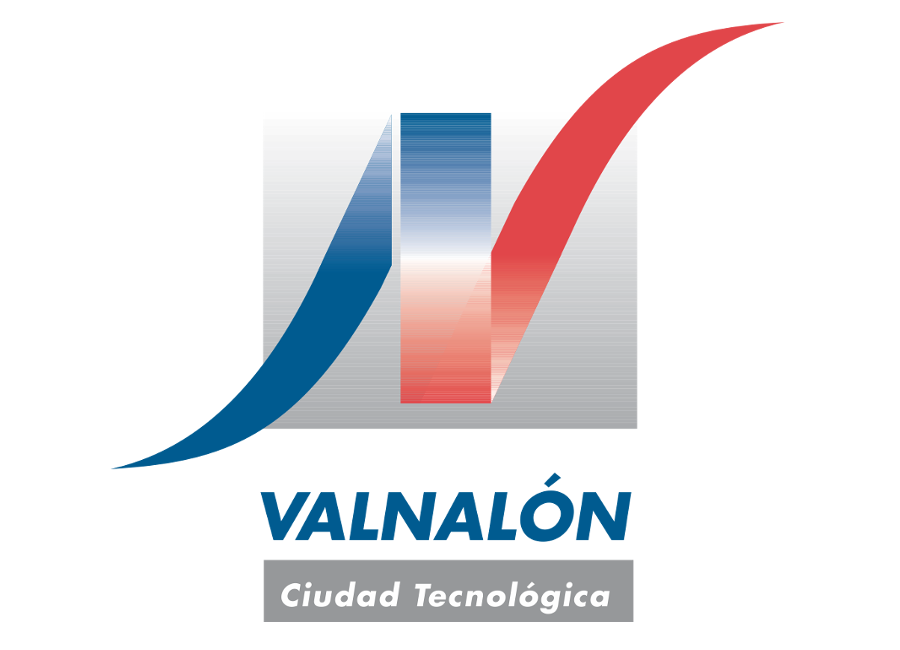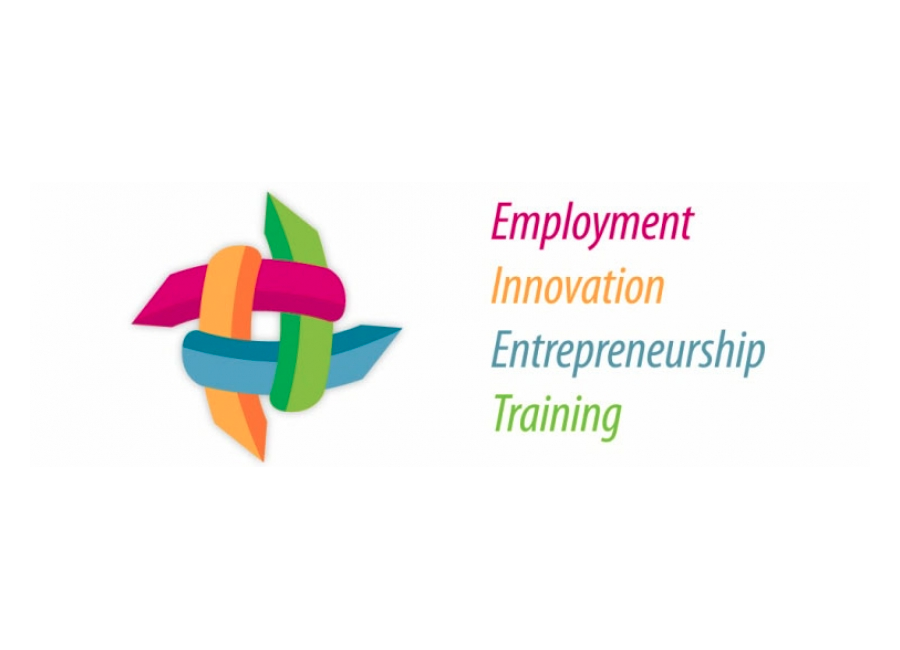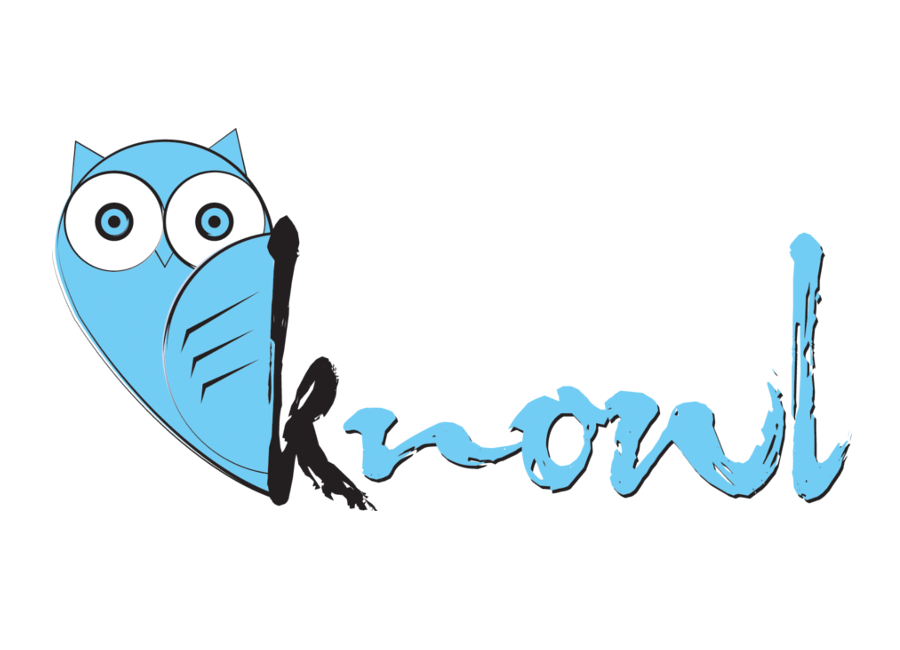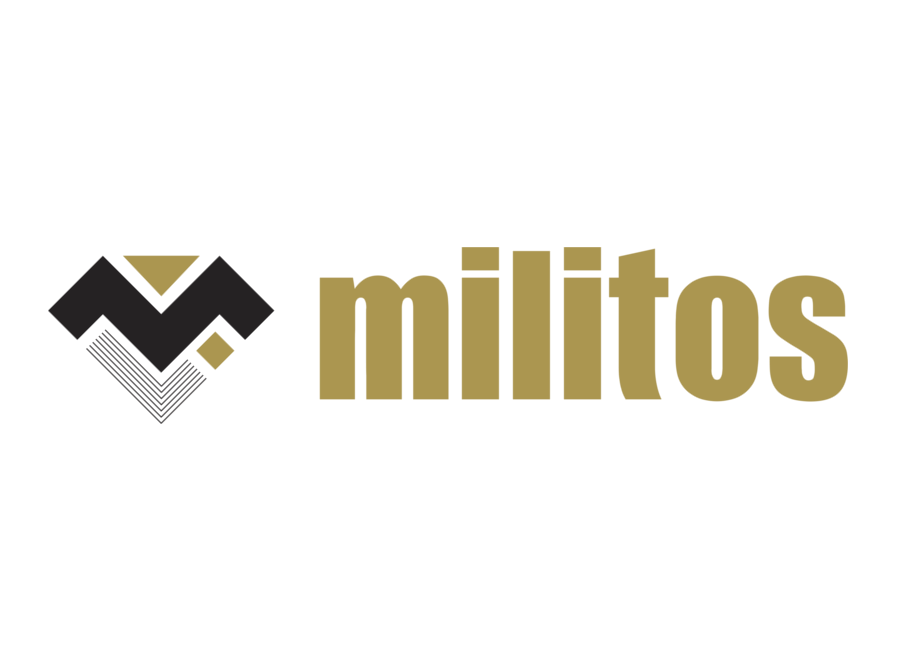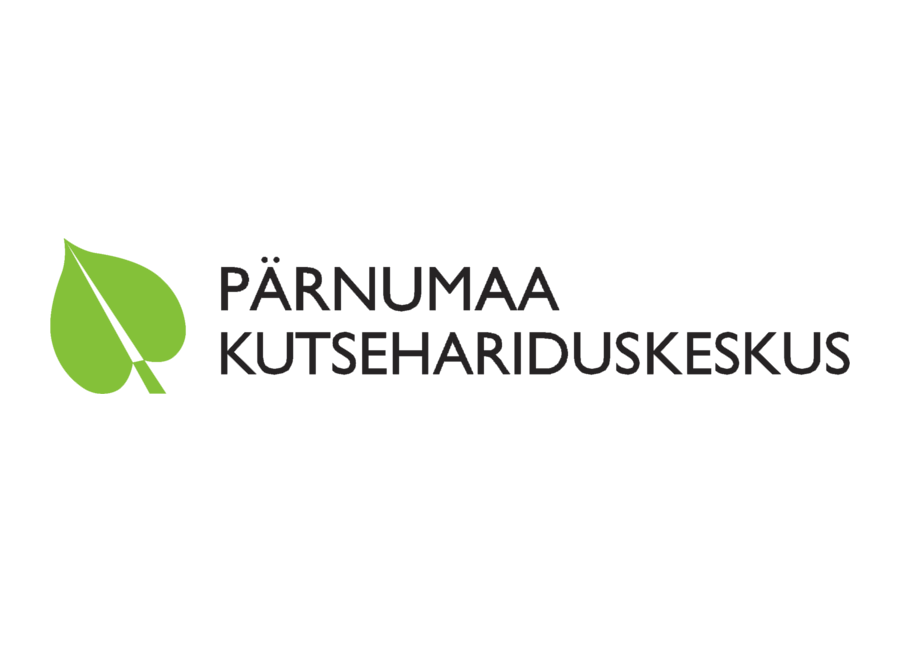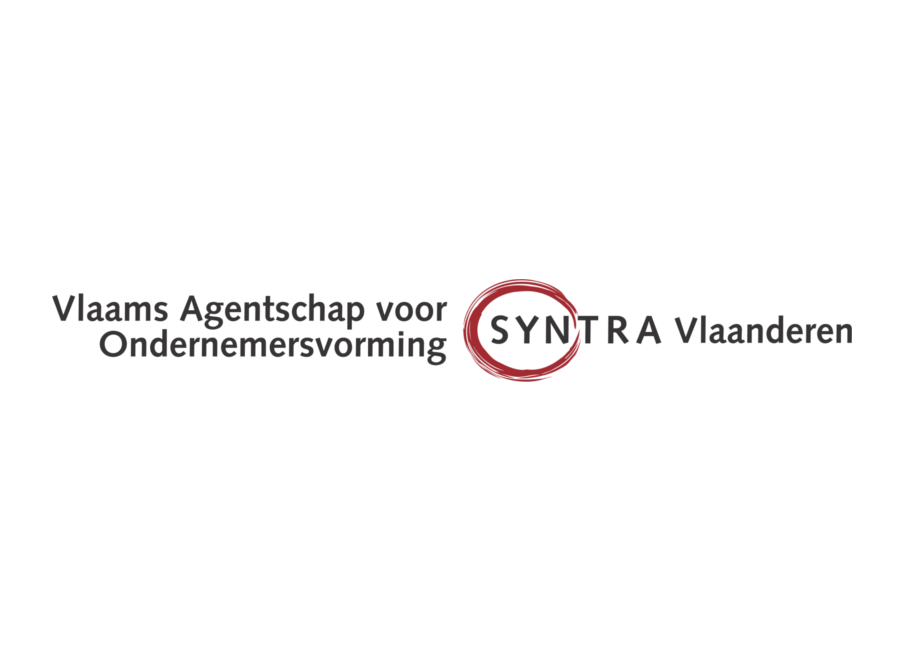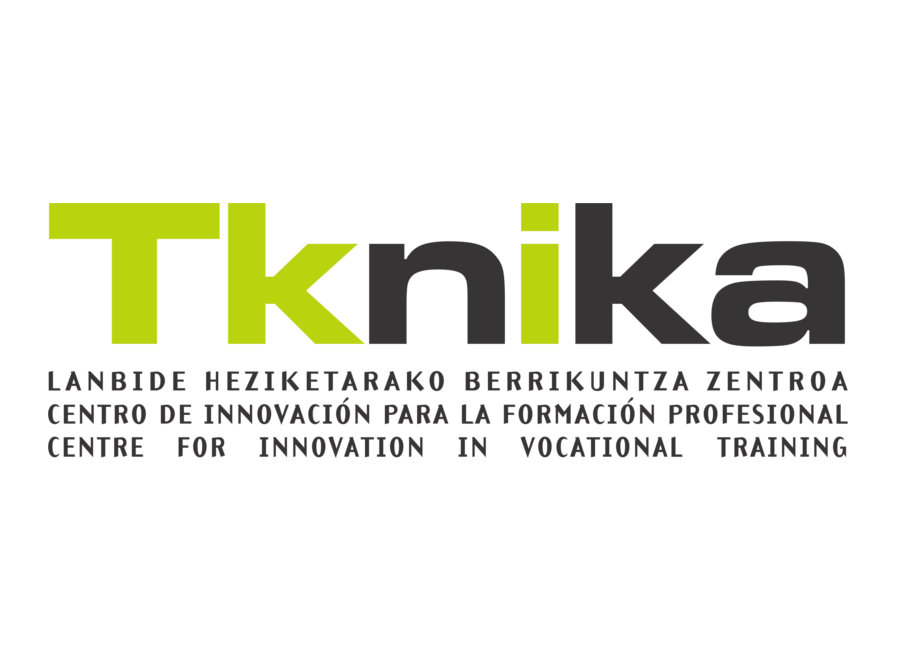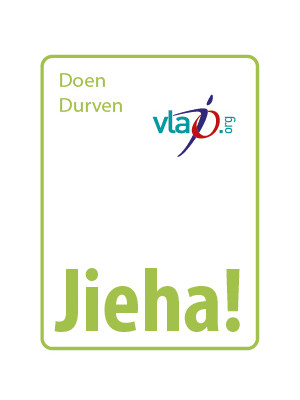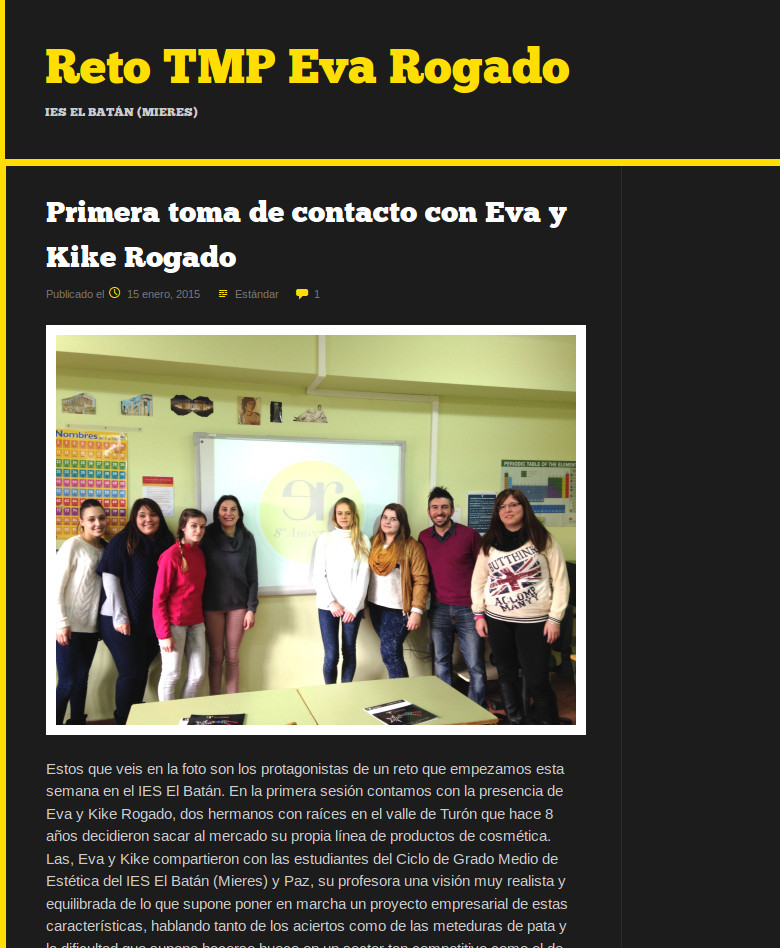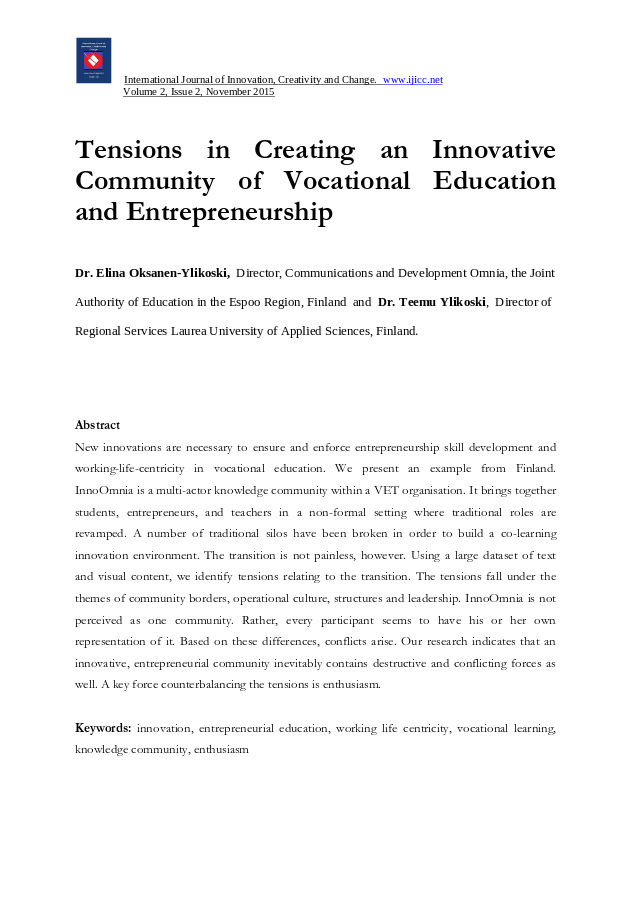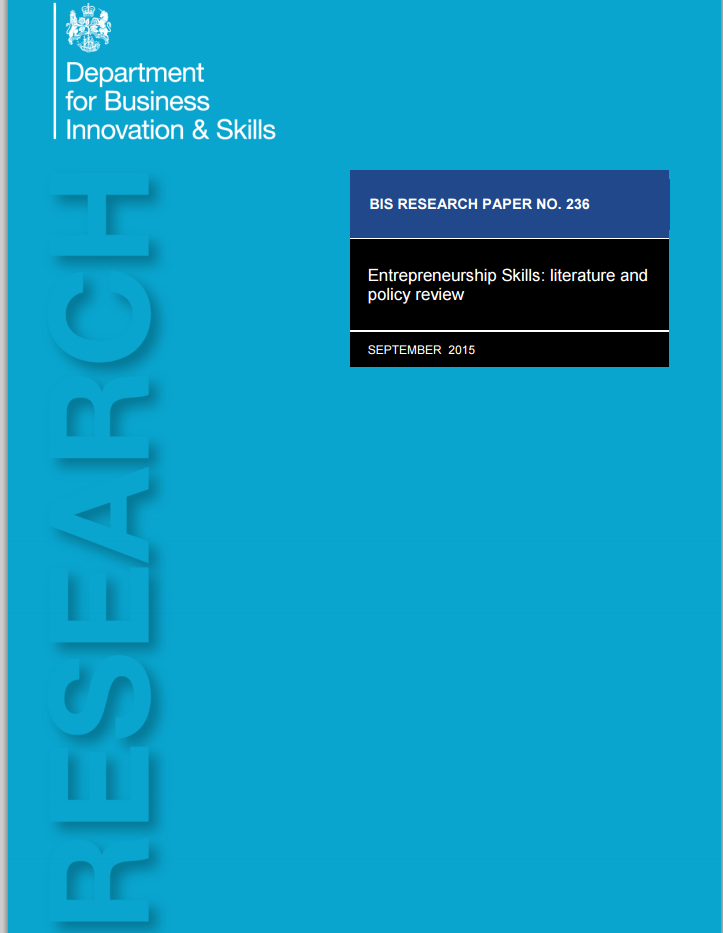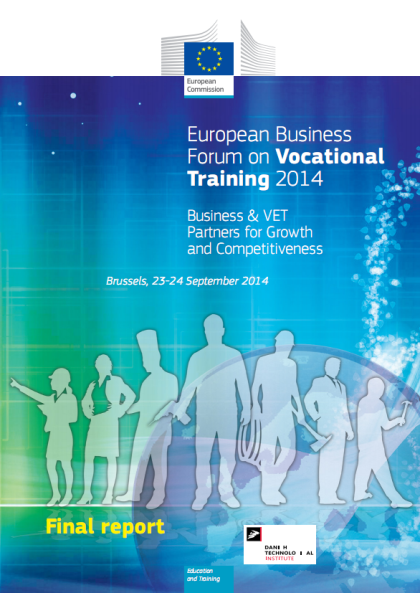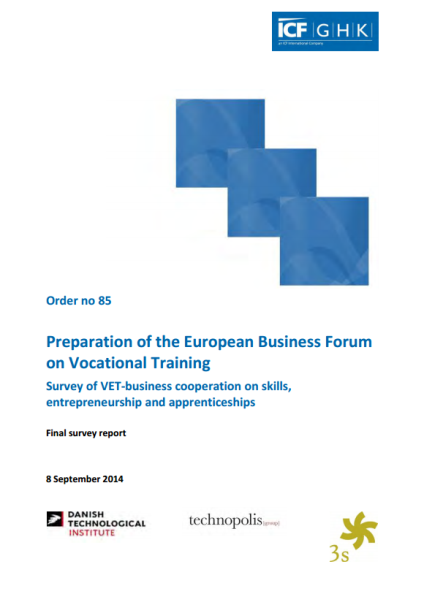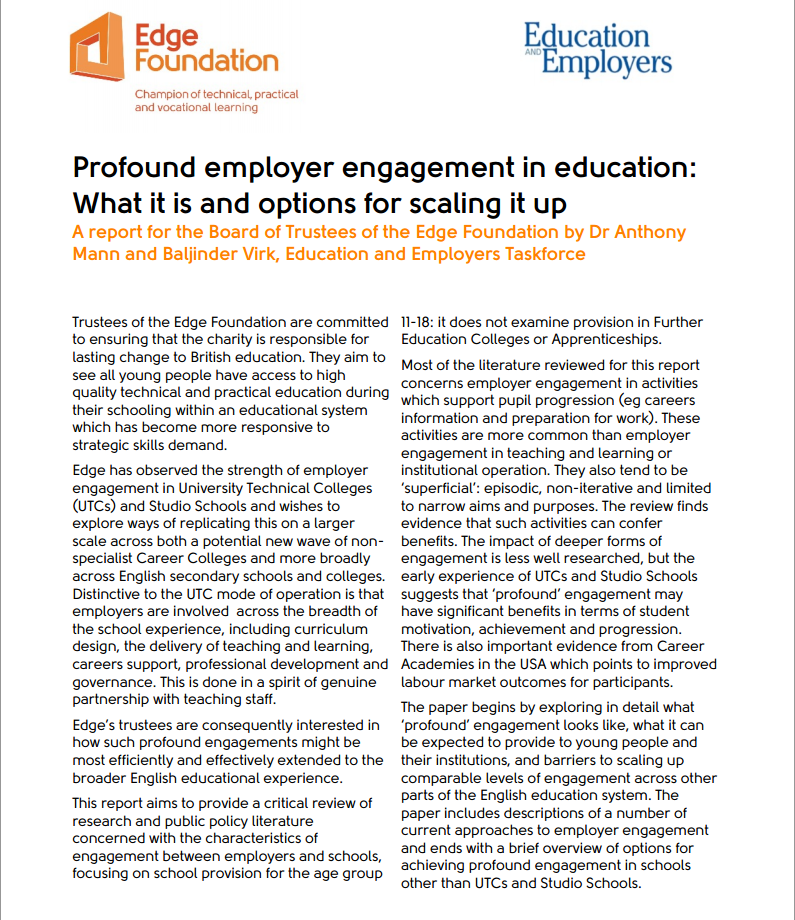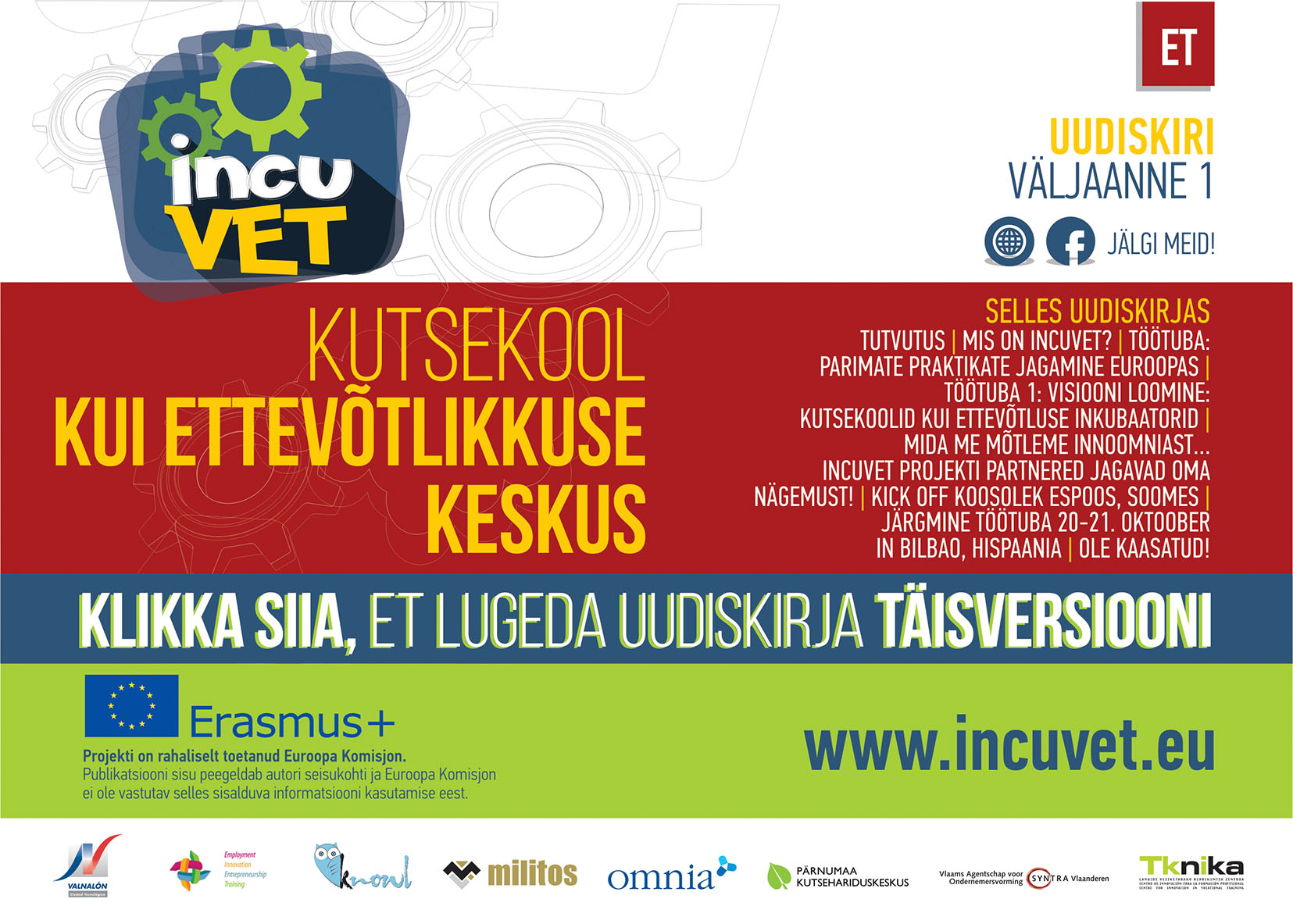EL-i kaasrahastatud projekti IncuVET (2014-2016) visioon on toetada ja edendada kutekoolide innovaatilist rolli kohaliku ning piirkondlike ettevõtluse arendajana. Kutseõppeasutused hõlmavad oma tegevustes mitmeid sidusrühmi: omavalitsused, tööandjad, alustavad ettevõtjad, õpetajad ja õpilased. Kõik need sidusrühmad koos aitavad ellu viia õppekavad, mis on tihedalt põimitud ettevõtlusega ning see annab võimaluse üksteiselt õppida läbi koostöö, mis on suureks väärtuseks koolidele, õpilastele ning kohalikele ettevõtjatele.

MÕTTEVIISI MUUTMINE Projekt pakub avatud ruumi, kus kõik huvitatud sidusrühmad (õpetajad, tööandjad, ettevõtjad, üliõpilased, kohalike omavalitsuste esindajad, ühiskondlikud organisatsioonid) alustavad avastamise protsessi ja arutelu, et vaadata suuremas pildis, millist rolli peaks ettevõtlus mängima ühiskonnas ja hariduses.
UUTE IDEEDE VÄLJATÖÖTAMINE Projekti motoks on “Ühtegi ideed ei jäeta kõrvale”. Loovusele ja jätkusuutlikkusele pannakse suurt rõhku. Selleks, et luua sobivad tingimused uute ideede tekkimisele tuleb luua sidemed igapäeva eluga ning interdistsiplinaarne ehk erialade ja valdkonnaülene koostöö.
LISAVÄÄRTUSE LOOMINE Projekti eesmärk on luua ja tagada tingimused, et uued ideed ei jääks ainult mõttetasandile, vaid rakenduksid elujõuliste äriideedena, innovaatiliste toodete ja teenustena, uute õpetamisemeetoditena, kaasava sotsiaalse süsteemina, kultuurisündmustena ja lisaväärtuse loomisena. Samas luues panuse majanduslikus, sotsiaalses, kultuurilises ja keskkonnaalases arengus kohalikel turgudel ja kutseõppeasutustes.
IncuVET projekti eesmärgiks on leida õige tasakaal ja põimida need kolm kihti ja õppida olemasolevatest algatustest. Projekt on ülesse ehitatud ideede vahetamisele, kogemuste ja praktikate jagamisele partneritega läbi nelja seminari vormis õppereisi ning külastades parimaid praktilisi näiteid neljas Euroopa riigis (Soome, Hispaania, Kreeka, Belgia). Samas luues ka koostöövõimalusi uute partneritega üle kogu Euroopa, kaasates nende teadmisi ja praktikaid projekti teadmistebaasi ja Euroopa ettevõtlushariduse informatsiooni- keskustesse ning kutsekoolidesse.
OSALE
IncuVET ootab külalispartnerite panuseid ning on avatud sünergiale ja koostööle, kui soovite anda oma sisendi kutsehariduse ettevõtluse hariduse arendamisel.
 INFO
INFO Partners
Partners